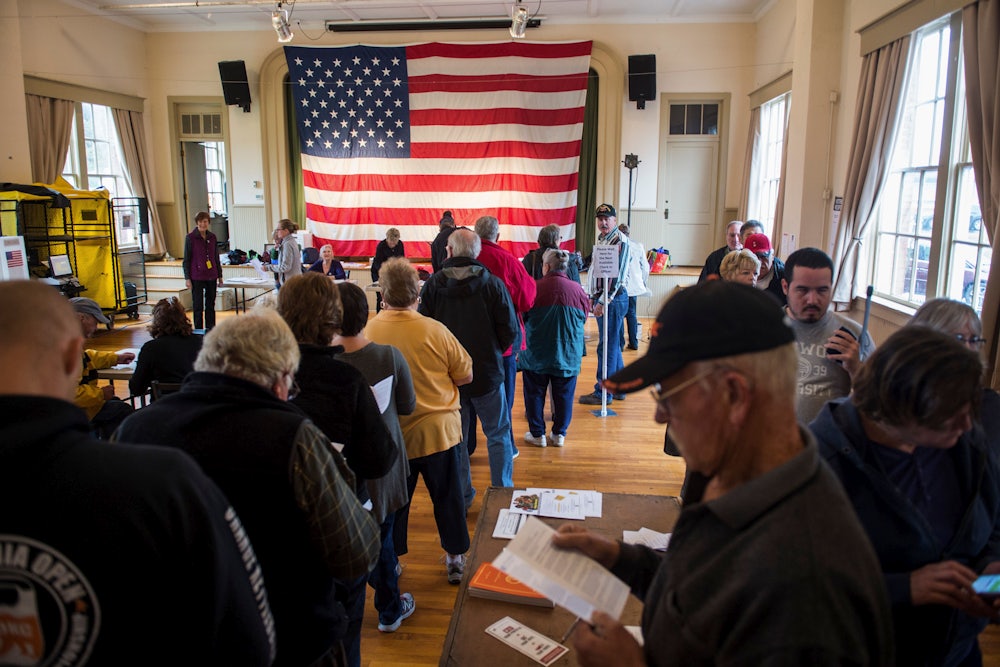I wrote last month that midterm voters had an opportunity to strengthen the nation’s democratic processes. In red and blue states alike, they passed ballot measures and constitutional amendments to do just that.
Michigan voters led the way by approving a bold slate of electoral reforms. One measure will establish an independent redistricting commission after a decade of Republican-led gerrymandering in the state. Another one will enact automatic voter registration, no-excuse absentee ballots, and other voting-rights reforms. Taken together, the two measures are a boon for voters in general and for Democrats eyeing the 2020 presidential races.
Voters in Colorado and Utah approved constitutional amendments to place redistricting in the hands of independent commissions. Missouri, in a package of open-government reforms, handed the power to draw districts to a nonpartisan state demographer. Nevadans voted in favor of automatic voter registration, while Maryland passed same-day registration that will allow unregistered voters to cast a ballot on Election Day.
Congressional races offered a mixed bag of results. The House will better reflect the American people it serves thanks to a diverse set of victorious candidates, including the first Native American women and Muslim women representatives. At the same time, voters showed little appetite for stamping out public corruption by returning two Republican representatives currently under indictment and a Democratic senator who escaped conviction in a corruption trial last year. Even worse, voters in Florida and Georgia backed their respective Republican gubernatorial candidates after campaigns marked by racism and allegations of voter suppression.
The biggest pro-democracy result of the night, however, also came from Florida. Voters there approved Amendment 4 to end permanent felon disenfranchisement in the state (except for people convicted of murder or serious sexual offenses). This will return voting rights to as many as 1.5 million Floridians, including one in five of the state’s otherwise eligible black men. Florida had been the national leader in felon disenfranchisement, so the amendment’s success also bodes well for similar reforms in other states. It also might bode well for Democrats in the 2020 election, given the state’s importance in the Electoral College and its perennially razor-thin margins of victory.
